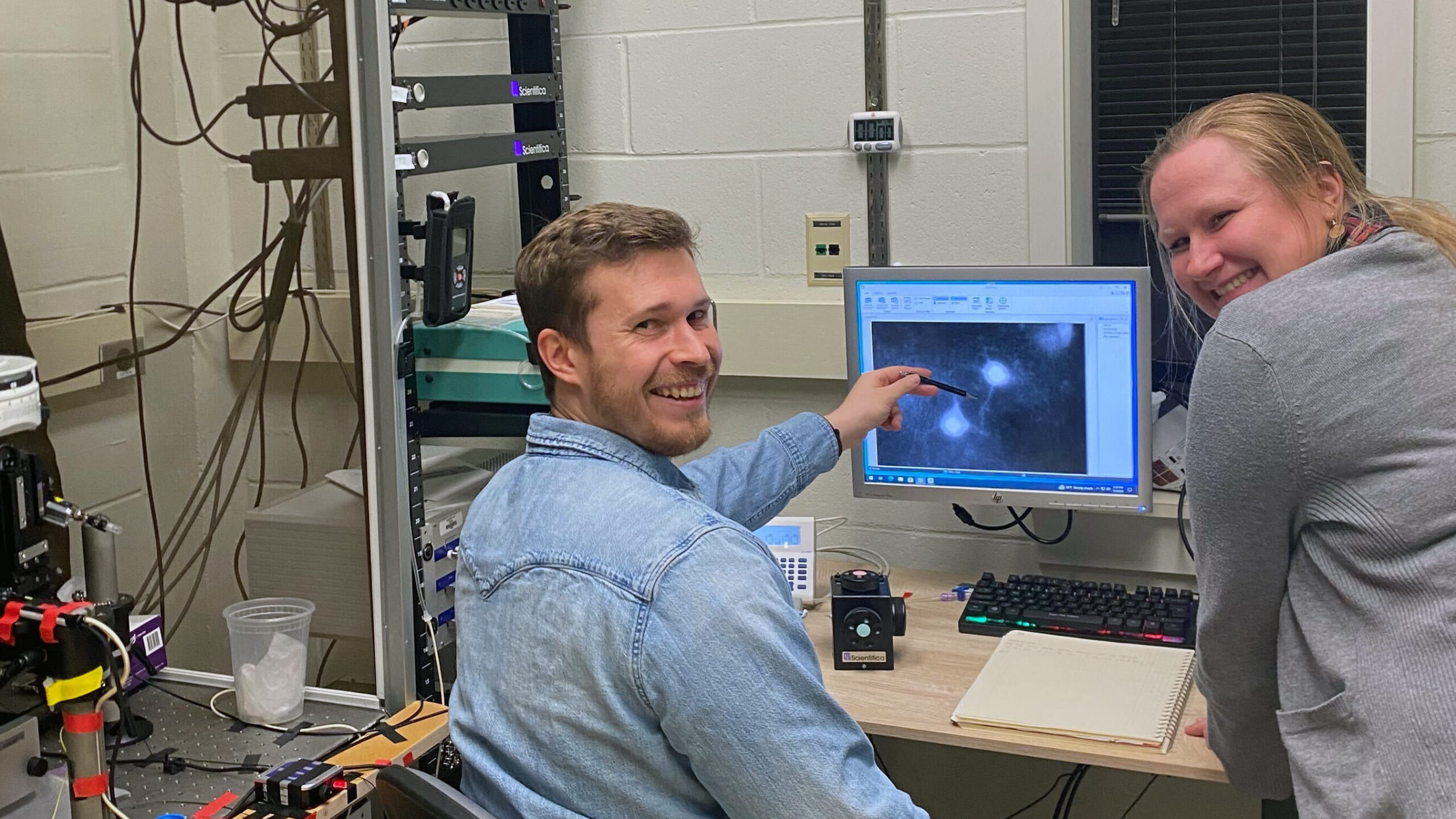Roles of Postnatal Transient Connectivity in the Development of Fragile X Syndrome

Gabrielle Pouchelon, PhD
Principal Investigator
Dimitri Dumontier, PhD
FRAXA Postdoctoral Fellow
Cold Spring Harbor Laboratory
Cold Spring Harbor, NY
2023-2024 Grant Funding: $100,000
Summary
Many parents report that their children with Fragile X syndrome are overly sensitive to loud noises, bright lights, and other sensory inputs. With this grant, the team will use state-of-the-art neuroimaging techniques to pinpoint how these sensitivities come about and how they might be avoided. One goal of this research is to develop a noninvasive screening method that can assess potential treatments for Fragile X syndrome.
The Science
At birth, the brain starts receiving information from the external world and the vast diversity of sensory stimuli. During this time, neuronal networks of the sensory cortex are deeply reorganized to ultimately process and interpret sensory information in adulthood. In Fragile X syndrome (FXS), the maturation of the sensory cortex is perturbed, affecting the processing of sensory stimuli. We have identified transient inputs controlling the development of the sensory cortex during the early postnatal development that are disrupted in FXS.
With this grant, using state-of-the-art cell-type specific genetics and physiological methodologies, we aim to understand the role of transient connectivity in the impairments of early circuit wiring during Fragile X syndrome development and to rectify these early processes to improve the sensory cortex maturation in FXS. Because one of the primary roles of the sensory cortex is to properly interpret the external cues to interact with the environment, we believe that our project will support the future development of therapeutics targeting the restoration of this primary function at the early onset of the disease and will have a tremendous impact on FXS patients and their families.
